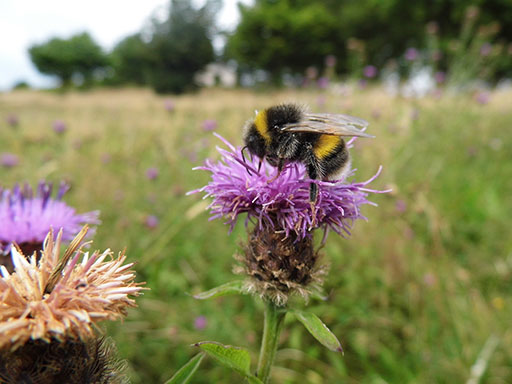More than half of UK adults said being close to nature improved their mental health during lockdown, new research has shown.
The study was released in time for Mental Health Awareness week, which takes place this week with a theme of nature. It also reported that wildlife ‘cams’ saw hits increase by over 2,000 per cent during the pandemic, while wider studies also found that people not only spent more time in nature but were noticing it more.
It comes as many have found that simple moments outdoors during the past year, whether noticing birdsong or seeing new buds on the trees, were soothing and comforting in a way that felt both unexpected and welcome.
Research by the Mental Health Foundation (MHF) states that even small contacts with nature can reduce feelings of social isolation and be effective in protecting our mental health and preventing distress. But with around 13 per cent of UK households having no access to a garden, existing inequalities have been amplified during the pandemic.

How important nature is to our wellbeing was also highlighted in another recent report, by researchers at the University of the Highlands and Islands (UHI) and the University of Aberdeen, who found that people without patios and gardens experienced greater mental health challenges during the Covid-19 pandemic than those who have access to their own outdoor space.
Gill Hubbard, lead author of the Scottish study, said that it also shows people living in affluent areas had better mental health than those in deprived areas.
“Taken together, this shows that the effects of this pandemic are worse for people who do not live in homes with accessible gardens,” she said.
Access to shared spaces did not show as having the same level of positive impact, and that loneliness plus lack of social support exacerbated these effects. In contrast, the study found that shared activities in community gardens and city farms can make a huge difference to this outcome.
The study by UHI found that mental health during the pandemic was shown as being poorer in younger adults and women, and asked whether support for more outdoor and creative spaces might change that.
And a recent article by the British Psychological Society (BPS) article showed gardening activities were found to promote family connection and emotional wellbeing. They even improve cognitive and educational outcomes in children and adolescents, alongside “increased enjoyment, sense of achievement, satisfaction and pride from nurturing the plants; feelings of mastery and empowerment for children who do not excel in the traditional academic setting; provide quiet time for reflection and increased confidence and self-esteem.”
With climate change at the forefront of nature news, we are also now learning that our disconnect from the natural world is not just damaging our environment – it is damaging to us.
As chief executive of the Mental Health Foundation, Mark Rowland, put it: “It’s as if we’re re-discovering at our most fragile point our fundamental human need to connect with nature.”
More resources
For more resources around taking care of your mental health and top tips for connecting with nature, check out the Mental Health Foundation toolkit and join in the conversation on social media by following the hashtags #MentalHealthAwarenessWeek #ConnectWithNature.
Charities such as Thrive use gardening to bring about positive changes in the lives of those living with disabilities, social disadvantage or isolation.













What the research on access to green space – especially shared space – misses is the *quality* of that space. It acts like all green space is equal, ignoring issues like litter, neglect, drug use, and other anti-social behaviour taking place, etc. Seeing rubbish everywhere, or being frightened by a space used by aggressive people obviously has a big negative impact on mental health, so why it isn’t accounted for is a mystery! This will wash out the positives that nice, well-tended green space has. If these issues were taken into account, it would highlight the importance of governments and citizens taking care of shared green spaces, including national campaigns against litter etc., as well as societal problems.